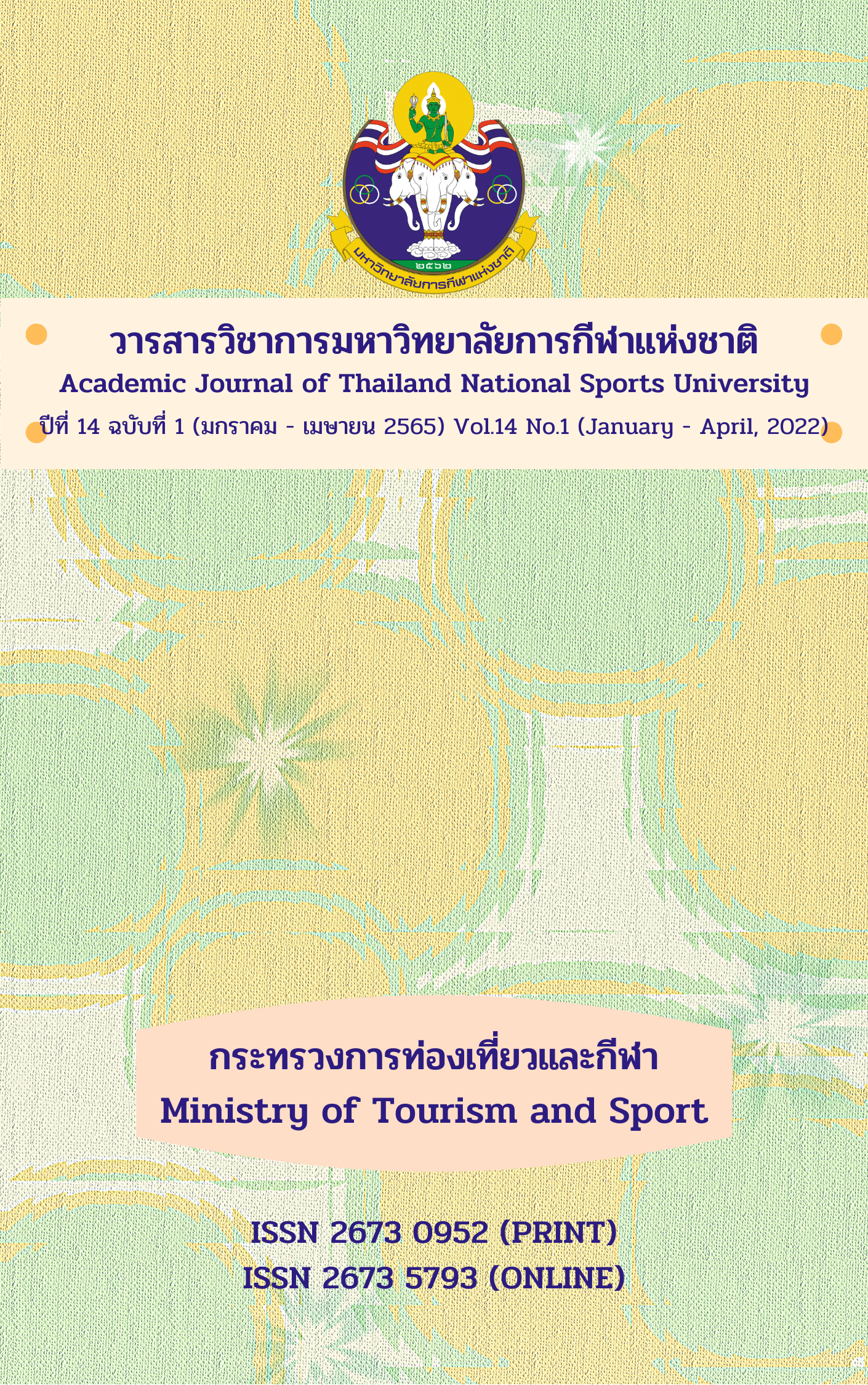HEALTH CARE BEHAVIORS OF STUDENTS AT THE INSTITUTE OF PHYSICAL EDUCATION, CHON BURI CAMPUS AS BASED ON THE NATIONAL HEALTH RECOMMENDATIONS
Main Article Content
Abstract
In this thesis, the researcher examined (1) the health care behaviors of selected students at the Institute of Physical Education, Chon Buri Campus as based on the National Health Recommendations. The researcher also studied (2) the relationships between predisposing factors, enabling factors, and reinforcing factors and the health care behaviors of the students under investigation as based on the National Health Recommendations.
The subjects consisted of 117 undergraduate students enrolled at the Institute of Physical Education, Chon Buri Campus in the academic year 2017. A questionnaire constructed by the researcher was used as a research instrument for collecting germane data. The data were collected between March and April 2018. Using techniques of descriptive statistics, the researcher analyzed the data collected in terms of percentage, mean, and standard deviation. Pearson’s product moment correlation coefficient (PPMCC) method was also employed by the researcher. Statistical significance was set at the .05 level. Findings were as follows: More than half (57.30 percent) of the students (57.30 percent) showed knowledge of the National Health Recommendations at a moderate level the students with 69.20 percent displayed health care behaviors as based on the National Health Recommendations at a moderate level.
The researcher also determined that the predisposing factor knowledge of the National Health Recommendations was positively correlated with the health care behaviors of the students as based on the National Health Recommendations at the statistically significant level of .05. However, the enabling factors having resources and the environment, and having a health promotion policy were established as not being correlated with health care behaviors as based on the National Health Recommendations on the part of the students at the statistically significant level of .05. Moreover, the reinforcing factors perceptions of information and support from persons with whom the students were socially engaged were also found not to be correlated with the health care behaviors of the students as based on the National Health Recommendations at the statistically significant level of .05.
Article Details

This work is licensed under a Creative Commons Attribution-NonCommercial-NoDerivatives 4.0 International License.
The published article is a copyright of the Academic Journal of Thailand National Sports University. The passage appeared in each article in this academic journal is a perspective of each author which is not related to the journal. Each author is required to be responsible for all components of his/her own article. If there are any mistakes, each author must be responsible for those mistakes on his/her own.
References
Ministry of Public Health, Department of Health Service Support, Primary Health Care Devision. (2008). Various views on the development of primary health care in the future. Bangkok: National Office of Buddhism.
Ministry of Tourism and Sports. (2013). Strategic Institute of Physical Education 2013 - 2017. Chonburi.
Natthapas Pormma. (2010). Knowledge and behavior according to the principles of hygiene of students in Ramkhamhaeng University demonstration school (Master’s thesis), Ramkhamhaeng University.
Nitaya Phensirinapa. (2016). Empowerment for health promotion and disease Prevention. In the teaching document on health promotion and disease prevention (9th ed.). Nonthaburi: Sukhothai Thammathirat University Press.
Office of Policy and Strategy. (2007). National Health Development Plan 2007-2011. Bangkok: The War Veterans Organization In the Royal Patronage.
Pravet Wasri. (2004). New Government Management. Bangkok: The Publisher of Chulalongkorn University.
Somboon Suriyawong, Somjittra Rueangsri, & Pensri Setthawong. (2001). Educational Research Methodology (2nd ed.). Bangkok: Academic Promotion Center.
Suriyadeo Tripathi. (2008). Cost of Thai Youth and Life. Bangkok: Office of the Health Promotion Fund.


